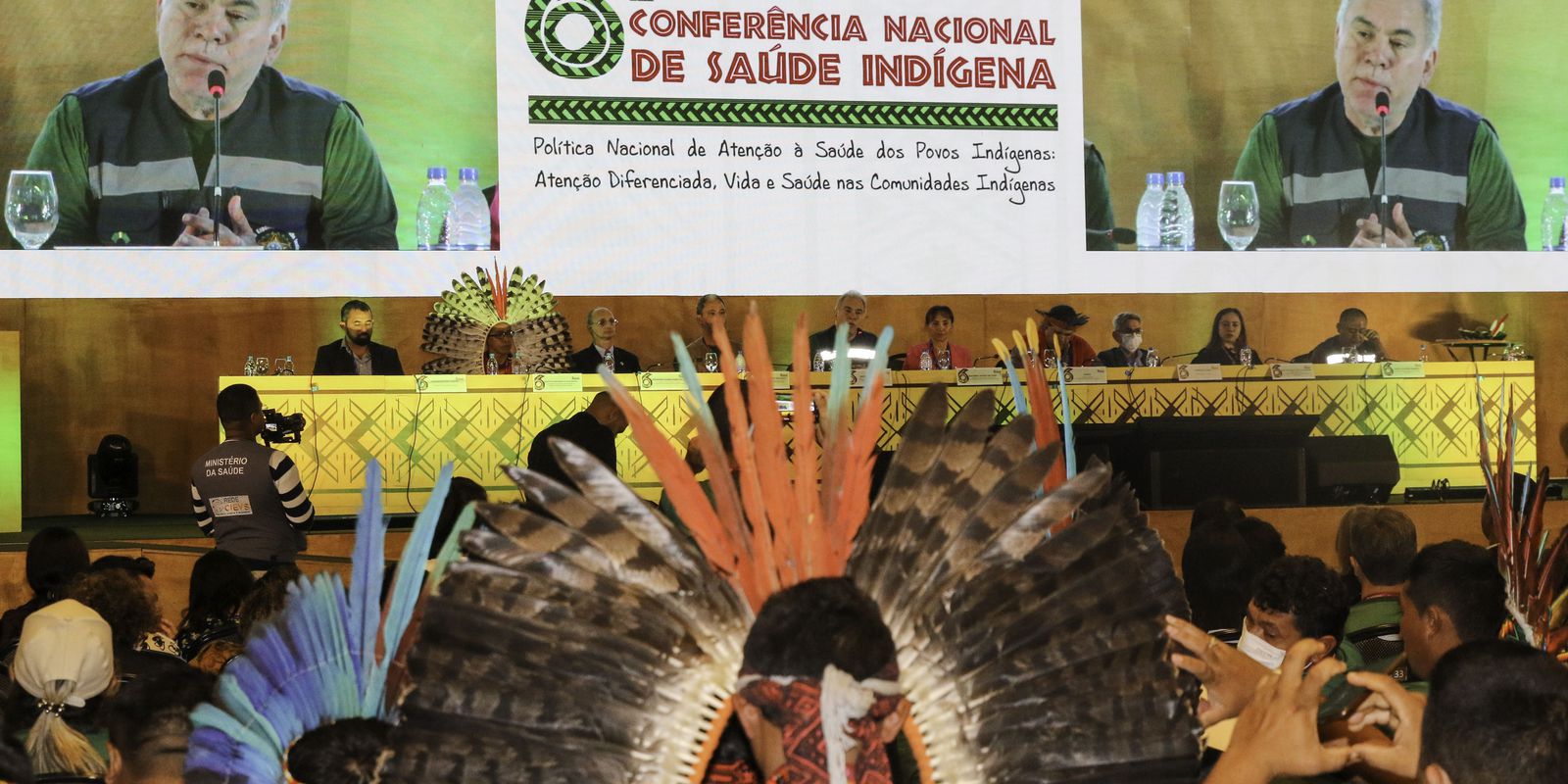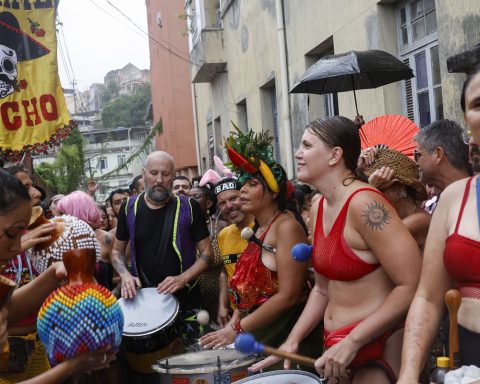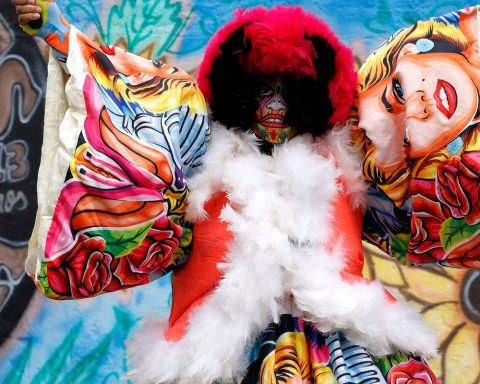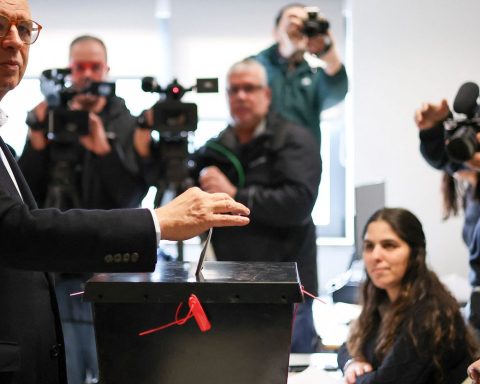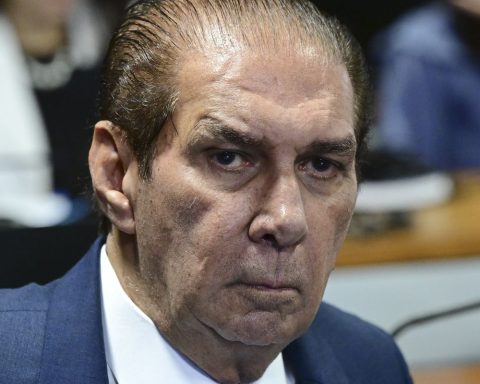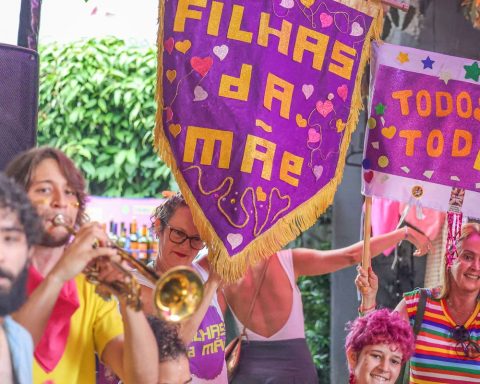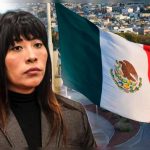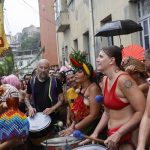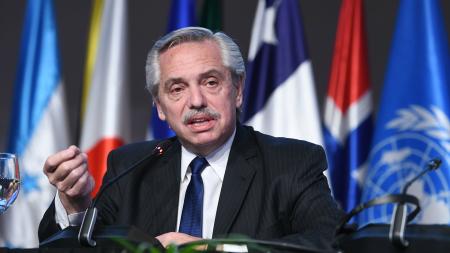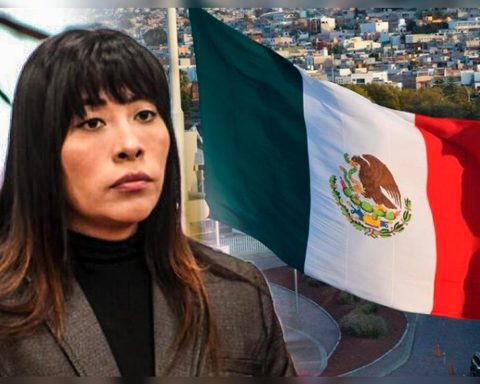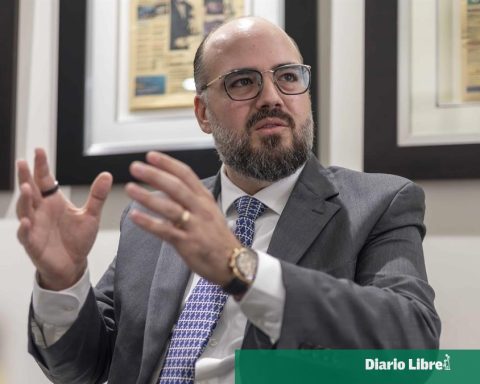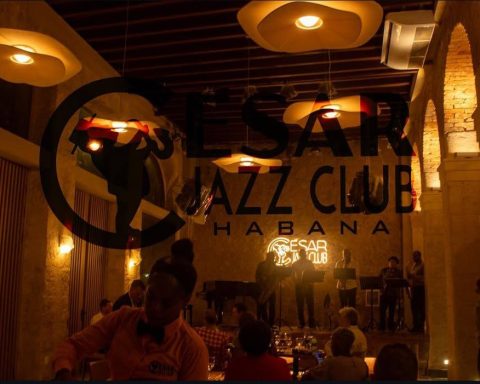This Monday (14th), the 6th National Conference on Indigenous Health (6th CNSI) in Brasília began. Until Friday (19), more than 1,700 participants representing indigenous peoples throughout Brazil will help update the National Indigenous Health Policy (Pnaspi), which will redefine guidelines and implement ethnic and cultural particularities in the health care model for indigenous peoples in the coming years in Brazil. All of this was decided with the direct vote of 1,300 delegates from indigenous villages and communities throughout Brazil.
At the opening of the event, the Minister of Health, Marcelo Queiroga, recalled visits he made to indigenous communities and cited the Posto Leonardo, in Alto Xingu, as an example of a place where primary health care takes place with ophthalmological consultations, dental procedures and even assistance with telehealth support.
“This public policy needs to be expanded and, for that, every penny, public resource that arrives at the Special Secretary for Indigenous Health (Sesai) has to reach the Brazilian indigenous communities. We know that there are threats of these resources not reaching their true owners, our indigenous people”, he highlighted.
According to the Ministry of Health, the 6th CNSI is the final stage of work that began with 302 local and 34 district conferences, held between October and December 2018. “2,380 proposals emerged from the district conferences, consolidated into 252 propositions to be analyzed at this stage national”, detailed the folder.
The proposals are divided into seven thematic axes: the articulation of Traditional Indigenous Health Systems; creation of the Care Model and Organization of Health Services; Human Resources and Personnel Management in an Intercultural Context; Infrastructure and Sanitation; Financing; Health Determinants; Social Control and Participatory Management.
“The voices of relatives have strength and need to be heard. The conference is the moment for the indigenous to be present and guarantee quality health for our people”, says William Uwira Xacriabá, Secretary General of the 6th CNSI. In addition, the 6th CNSI aims to approve the guidelines that will support local and district health actions and the reformulation of the National Health Care Policy for Indigenous Peoples.
Homage
The opening ceremony of the event today was marked by the delivery of the Maninha Xukuru Kariri commendation. The decoration recognized three Brazilian personalities whose contributions were outstanding in the struggle for rights and improvements in the health of indigenous peoples in Brazil. The honorees were: Ailson dos Santos (Yssô Truká), in the user segment; Maria do Carmo Andrade Filha (Carmem Pankararu), in the worker segment and Ubiratan Pedrosa Moreira, in the manager category.
Known as Maninha Xukuru Kariri, Etelvina Santana da Silva was born in 1966, in the Xukuru-Kariri village, in Palmeira dos Índios, in the interior of the state of Alagoas. She is recognized as one of the great indigenous leaders in fighting prejudice as a woman and an indigenous woman, being the only woman among so many chiefs and indigenous leaders. In 2000, she was nominated for the “1000 Women” Project for the Nobel Peace Prize.
She died in October 2006 due to ill health. In 2007, she received in memoriam, the Renildo José dos Santos award, for those dedicated to the defense of human rights. Maninha was honored in the Defense of Cultural Identity category.
